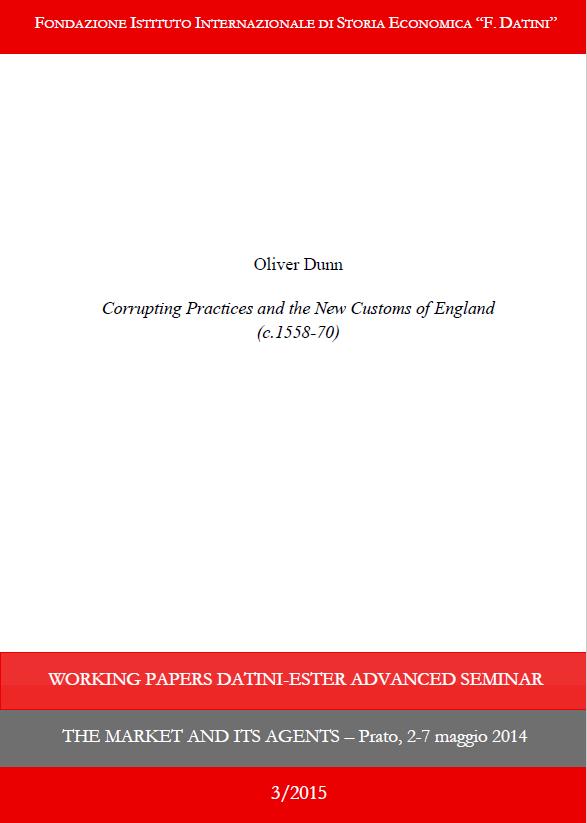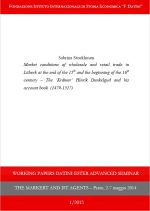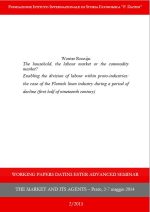Abstract: This paper is an outline of doctoral research undertaken at the European University Institute (2011-15). It considers stories of fraud and evasion and the system of customs taxation in sixteenth-century England. The information mainly survives in the Elizabethan State Papers and in records of the royal courts of Westminster. Surprisingly, customs evasion and fraud is the most dominant theme from records of authority that concern the customs. The accounts conflict markedly with the historiography of the early English customs system: economic historians once presented the customs as being part of a successful national service, yet many contemporary critics pointed to the problem of autonomy that local officers enjoyed. These men could be wayward and with in league with merchants were regularly excoriated in corruption rhetoric. This trope emerged as the customs became centralised and increasingly valuable between 1558 and 1570. A part of this process – almost experimental – these new taxes were measured directly by the exchequer, rather than being farmed wholesale that was long the norm. Counterintuitively, instead of this heavy taxation inciting protest, customs officers and merchants instead became the subject of detailed allegations of malpractices. A range of stringent laws were demanded from below to protect the monarch’s new customs. Anti-fraud measures survive as parliamentary statute laws, fiats, printed “orders for customers”, and the significant and curious new auditing mechanism that culminated in the great Port Books archive – a system that would endure until the close of the eighteenth century. The books did not passively record national trade, instead they functioned as an audit of customs declarations, which was a politically sensitive archive. The customs declarations were checked between duplicates – systemic scrutiny that was one part of the wider “discourse” of customs corruption. Far from being the footnote in a broader economic history, fraud and evasion worked to inaugurate this substantial early modern tax archive.
3/2015. Oliver Dunn, Corrupting Practices and the New Customs of England (c.1558-70)
The Market and its Agents – Prato, 2-7 maggio 2014
- 3/2015
Autore: Oliver Dunn
Titolo: Corrupting Practices and the New Customs of England (c.1558-70)



